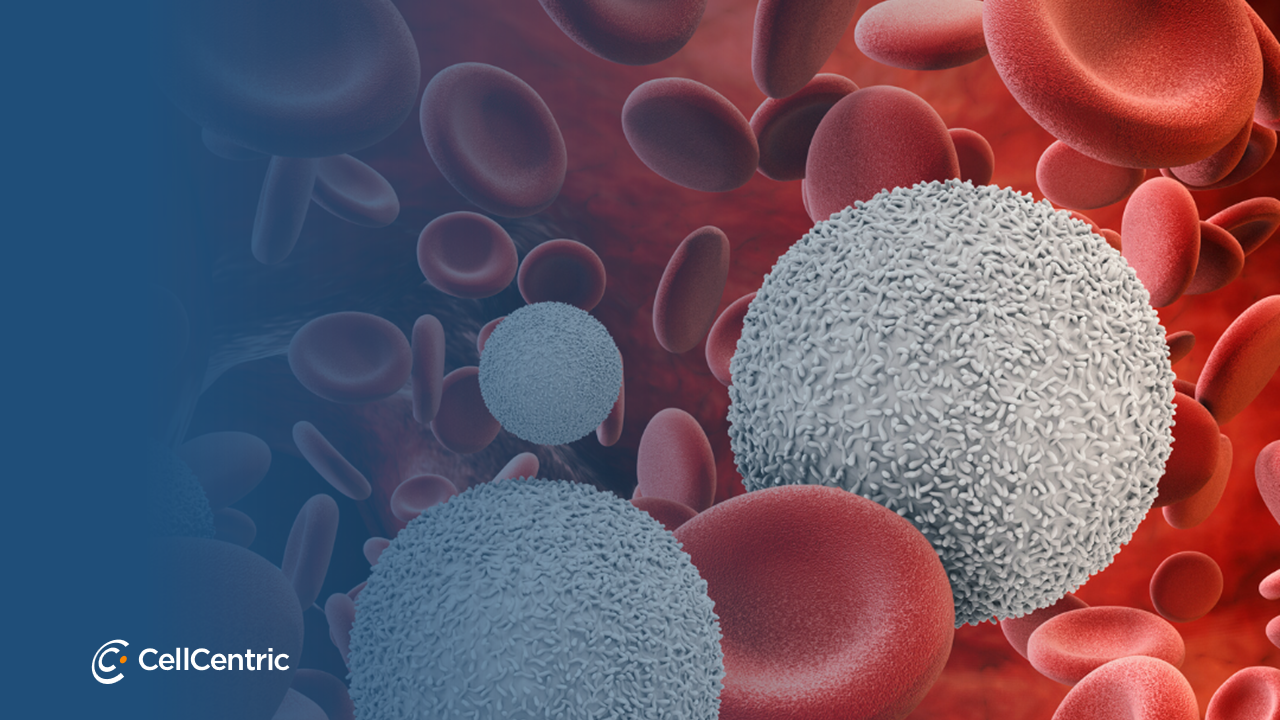CellCentric has developed CCS1477, a potent, selective orally-bioavailable inhibitor of the conserved bromodomains of twin histone acetyl transferase proteins, p300 and CBP. When p300/CBP are inhibited, expression of the drivers of late stage prostate cancer are significantly affected; the androgen receptor (AR), AR-splice variants and c-Myc. Driving down AR-SV in particular addresses inherent or acquired resistance to existing second generation anti-hormonal agents abiraterone, enzalutamide and apalutamide.
There is literature evidence that inhibiting p300/CBP may also have relevance to other tumour types. Breadth of efficacy cancer cell panel testing supports this, particularly for certain haematological cancers. This is now supported by data demonstrating CCS1477’s inhibitory effects on patient-derived acute myeloid leukaemia (AML) cells. A xenograft model of AML (MOLM-16) clearly demonstrates CCS1477 dose-dependent efficacy, including a significant and profound duration of effect following CCS1477 dosing cessation. This mirrors data from a castration-resistant prostate cancer xenograft model (22Rv1).
Professor Tim Somervaille, Honorary Consultant Haematologist at The Christie Hospital, and of The Manchester Cancer Research Institute, commented: ‘p300/CBP has been of significant interest for targeting AML for many years, but there has been a lack of quality agents to examine this clinically. CCS1477 offers a clear new opportunity for patients, particularly with late stage refractory disease, or in combination with existing first line treatments.’
As well as collaborating with The CRUK Manchester Institute, CellCentric has ongoing translational research looking beyond prostate cancer, with The Northern Institute for Cancer Research, Newcastle (Dr Luke Gaughan), The University of Leeds (Prof Maggie Knowles), The University of Cambridge (Prof Brian Huntly) and Columbia University, New York (Prof Laura Pasqualucci).
Dr Nigel Brooks, CellCentric’s Director of Translational Science, added “CCS1477’s progress has relied on CellCentric’s excellent links to world leading researchers and clinicians. We are really excited to see the compound progress to clinical trials this year, to demonstrate its potential for castration resistant prostate cancer, as well as other indications’.
About CellCentric
CCS1477 has relevance to multiple cancer types, but notably late stage, castration resistant prostate cancer (CRPC). It addresses the large and growing population of patients that have tumours that have inherent or acquired resistance to second generation anti-hormonal drugs. There is also compelling evidence of its potential for haematological cancers (AML, Multiple Myeloma, DLBCL), as well as tumours that bear mutations in either p300 or CBP (notably in bladder and lung cancers). CCS1477 will start clinical trials in the summer of 2018, with world-leading prostate cancer research clinician, Professor Johann de Bono of the Royal Marsden Hospital and Institute of Cancer Research (ICR), London.
CellCentric is a privately held business, with Morningside Venture Investments as its lead investor. CCS1477’s progress has also benefited from awards from Innovate UK (BioMedical Catalyst) and the Prostate Cancer Foundation. The company maintains active collaborations with multiple research centres in Europe and the US.
For more information on the company, please go to www.cellcentric.com, and follow us on LinkedIn or twitter @CellCentric.


